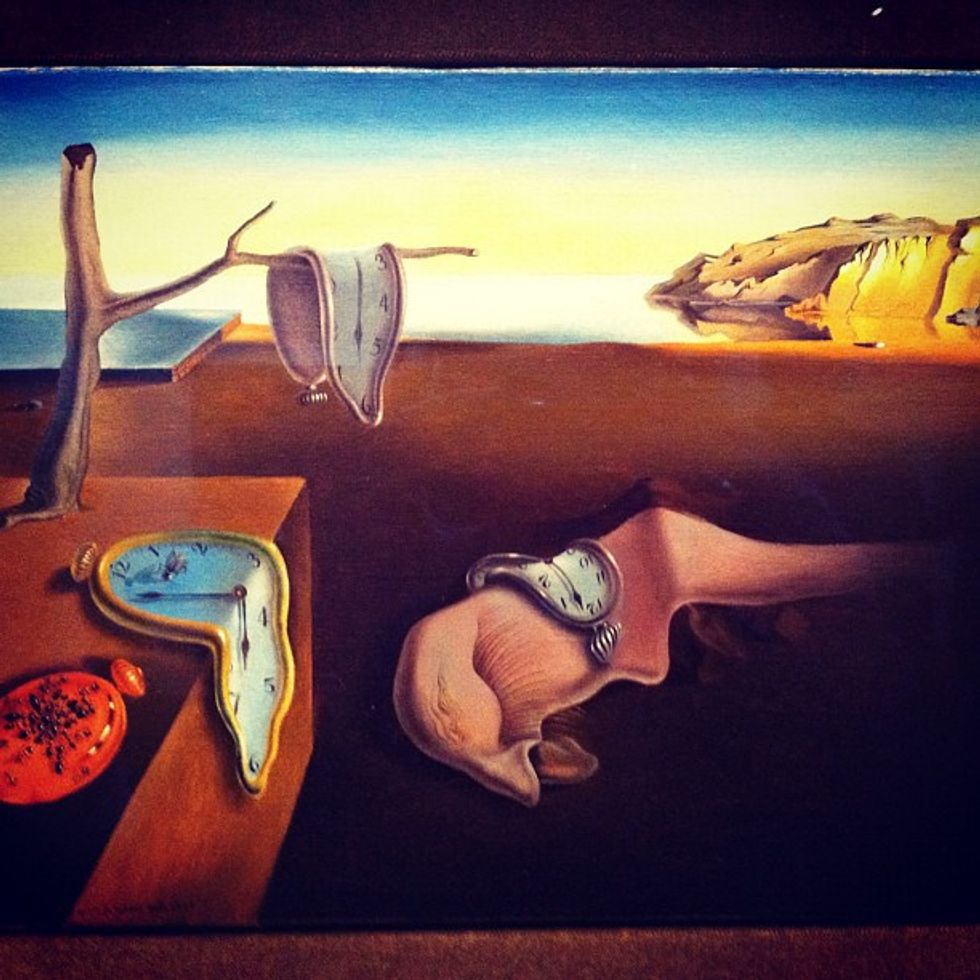A physicists
definition of time: "the progression of events from the past to the present and into the future
. We all know the word; we use it daily for everything we do;, however
, are we using it right? It's just something us humans composed to explain another oddity in the universe. There are days I wonder if time is an actual thing in the universe.
Who invented it? Why did they invent it? Isn't it relative? What if it was all fake and we're telling the wrong time? These are questions I ask myself sometimes. You might be confused about where I'm going with this, so let me explain my speculations on time.
I was reading an article about the concept of time and was intrigued by its dictionary definition stated above. I understand the past was before it already happened
, however
, what about now? If it's a progression from the past to the present and into the future, aren't we always in the future? For example, you are reading this article right now, but every word you scan was going to happen
; you knew the future before the present. This isn't on purpose, I promise!
I know that was short, so let me explain another. There are many ways to measure weight: years, months, weeks, days, hours, minutes, seconds, milliseconds, nanoseconds, etc.; but
what if I told you this was all a lie? Every second you have been counting was fake; from the moment you wake up to the moment you sleep was different. You ate dinner at the wrong time, maybe it's not 4 p.m. at all. You never knew that could happen, did you? Time juxtaposes itself so much that even us humans couldn't figure the loose ends it holds.
There is this other fact about our brain and time you may know but not a whole lot. In our brain we have this gadget called the circadian rhythms
, it is used as a clock in our body
. That's why you sleep when it gets dark and wake up when the sun rises. Let me ask you one question: Has there a day
or many days when your day seems to have gone by fast? I'm sure you answered "yes" because I sure have had my days gone by quickly here and there. This happens because when an exciting event occurs to our body clock increases and vice versa
. My question is, however, that if our circadian rhythms increase speed, shouldn't the time in reality also increase speed? Why is that our day can go by so fast, but, still, the time on the clock is the same? My speculation is that the time we're used to in the real world is wrong, and we should be following the time based on our body. When we get tired, that's when we go to sleep, and when our body says to wake up, that's when we should wake up.
Scientists say there was a beginning of time, and that was the era of the Big Bang Theory
. However, isn't the BBT just a theory? As far as I know, a theory is a superstition or system of ideas. If time started during the BBT according to scientists, then time never started at all. We never proved the BBT ever happened, so how can we prove that time began at that moment?
To me, I don't think time ever existed until the dawn of humans or when the earth was formed; that's also your opinion to make on that case. That means that time never started or ended at any given point in history until the formation of humans on planet earth.
All in all, do I think time is a cool concept? Yes, I do. Is time complex? Oh my, probably the most complex thing I've seen so far! Do I think time is real? Not really, I think time is an illusion. Then again, this is all just my simple opinion that can go on for hours, if I had the "time" anyway.
















